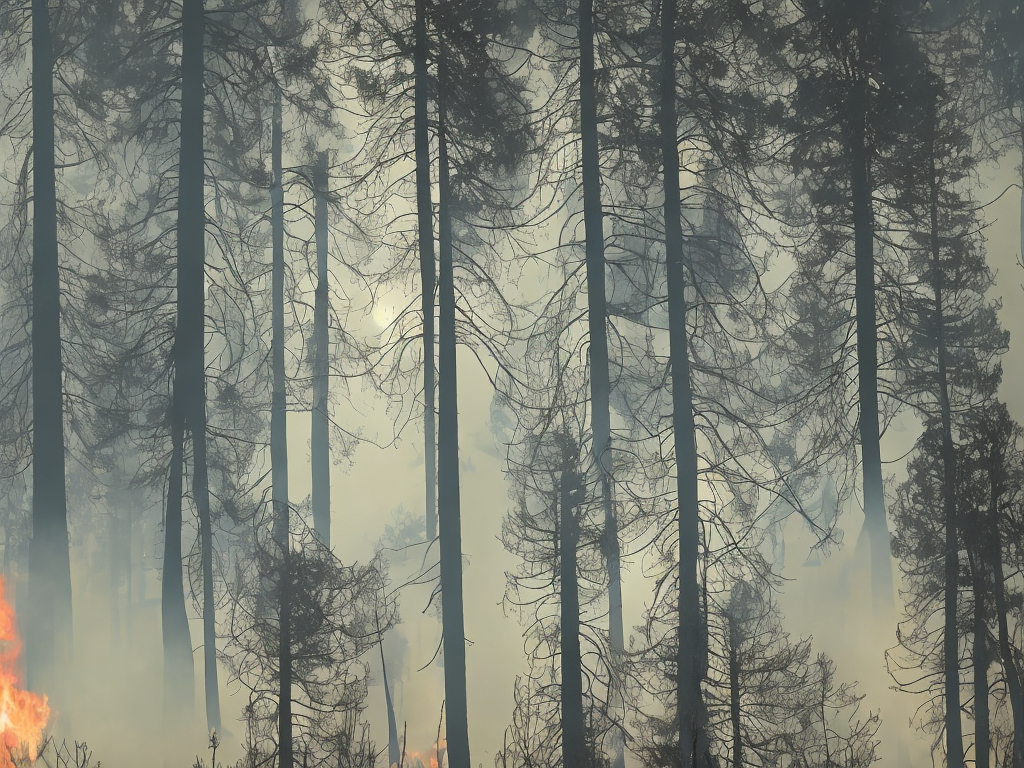
With the increase in wildfires across the globe, the issue of wildfire smoke has become a major concern for people living in the affected areas. Wildfire smoke can cause serious health concerns, such as respiratory problems and heart diseases, and can be particularly harmful to children, elderly people, and those with existing health conditions.
Protecting yourself from wildfire smoke might seem like a daunting task, but there are a number of simple ways to reduce your exposure. Let's take a look at some of the ways to do so:
Stay informed : Keeping up-to-date with the latest news about wildfires and air quality can help you stay prepared and make informed decisions. You can check the air quality in your area through the Environmental Protection Agency’s Air Quality Index (AQI) website or download an app for your smartphone that provides real-time updates.
Stay indoors: The safest place during a wildfire event is indoors, hence it's recommended that you stay indoors as much as possible. Make sure that your windows and doors are closed and sealed to prevent smoke from getting inside. If you have an air conditioner, put it on recirculation mode to improve the air quality.
Use air filters: An air purifier can help filter out smoke particles and improve indoor air quality. Look for an air purifier that has a HEPA filter as it can filter out particles as small as 0.3 microns. Remember to change the filter regularly to ensure it operates effectively.
Wear a mask: If you need to go outside, wearing a mask can be useful in reducing your exposure to smoke particles. A N95 respirator mask is recommended for wildfire smoke as it can filter out at least 95% of airborne particles. If you are unable to find a N95 mask, a surgical mask or cloth mask can offer some protection.
Avoid outdoor activities: If possible, avoid outdoor activities that can increase your exposure to smoke, such as jogging, cycling, or working outdoors. Instead, look for indoor activities that can keep you occupied.
Create a clean room: Creating a clean room can help minimize your exposure to smoke in the home. Choose a room with few windows, seal any gaps with tape or plastic and use an air filter to improve air quality. Remember to take a shower and wash your hair before entering the clean room to remove any smoke particles from your skin and hair.
Maintain good indoor air quality: Maintaining good indoor air quality can help filter out smoke particles from your home. Clean your air filters regularly and dust and vacuum frequently. Use cleaning products that are specifically designed to remove smoke from surfaces.
Stay hydrated: Wildfire smoke can cause dehydration which can worsen the symptoms of respiratory problems. Make sure to stay hydrated by drinking plenty of water, herbal tea and other non-alcoholic drinks.
Pay attention to symptoms: If you experience any symptoms such as nausea, headaches or coughing, seek medical attention immediately. These symptoms could indicate health issues caused by the wildfire smoke.
In summary, protecting yourself from wildfire smoke requires taking proactive measures to reduce your exposure. Staying informed and staying indoors as much as possible are the most effective ways to protect yourself. Using air filters and wearing a mask can also help, as can avoiding outdoor activities, creating a clean room, maintaining good indoor air quality, staying hydrated, and paying attention to symptoms. By following these tips, you can reduce your exposure to wildfire smoke and protect your health.
 Self-Instruct
Self-Instruct